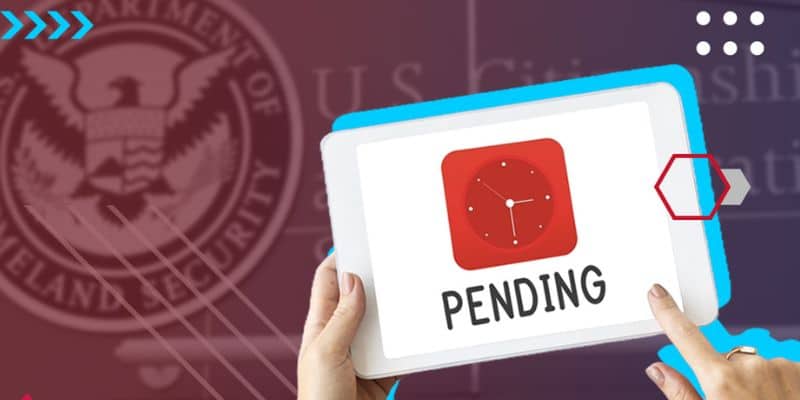
The faster processing times for EB-5 visas seem to benefit the initial petitions in the investor visa application process.
Specifically, some approvals by the United States Citizenship and Immigration Services (USCIS) of the first form that EB-5 investors must file, the I-526, have gotten the green light in less than three months. However, the processing time for the I-829 form, which is the final stage in the EB-5 process and is used to remove temporary residency conditions, is currently taking an average of 4.5 years.
According to Rebecca Bodony, managing attorney of BMB Immigration Law PLLC, the processing of this particular form is not consistent. “I-829 processing has been frustrating as it is definitely not being completed on a first-in, first-out basis. For example, I have clients that have recently received I-829 approvals in 24 months, but many clients have been waiting more than four years. And for those waiting over four years, they are all invested in projects where at least one other investor has received the I-829 approval, so it unlikely a project-related issue causing the delay.”
Meanwhile, Michael Harris, EB-5 immigration attorney from HarrisLaw, explains there’s not a particular reason for many of the I-829 delays he has assisted. “We have had some delays and RFEs on I-829s. Some for minor issues, such as the USCIS could not collect fingerprints from a client. Others have questions about bridge financing, for example. I obtained an I-829 approval last year for a project I represent. The project had an I-924 exemplar approval from 2015 (that I also obtained), yet the USCIS decided to question whether the bridge capital was still short-term financing. We were successful in responding to the RFE. I can’t speak to exactly why they are delayed otherwise.”
Most of the time, the main rationale for the long processing time of the I-829 application is that the USCIS finds inconsistencies in the documentation filed to prove that a minimum of 10 jobs were created and that the EB-5 investment was kept at risk for 2 years. In some cases, the agency issues further Requests for Evidence (RFE).
In some instances, mandamus litigation has been used to compel the agency to review a pending I-829 form. However, EB-5 attorneys caution that this legal tool is effective only if the investor’s case exceeds the “normal processing times.” Currently, the Immigrant Investor Program Office (IPO) takes an average of 53.5 months (approximately 4.5 years) to process this form.
Tahmina Watson, an EB-5 immigration attorney and the founding attorney of Watson Immigration Law, says the U.S. immigration agency must take additional precautions to reduce delays. “Despite the need for efficiency, USCIS has slowed processing times. Additionally, on April 1, 2024, USCIS significantly increased filing fees. As an attorney representing such clients, it is challenging not to feel constant anxiety for them, their families, their livelihoods, and their employers. USCIS should consider implementing premium processing for EB-5 cases and, at the very least, ensure that the requisite paperwork, such as crucial receipt notices, is handled promptly and efficiently.”
The rocky process of an EB-5 investor to get their I-829 form approved
Watson shares the story of a particular investor and their spouse, who filed their I-829 in May 2020 amidst the pandemic and received notification that their petition was accepted in July 2024.
“All seemed well, and we eagerly anticipated the arrival of the new green cards in due course. Little did we know the road ahead would be long and fraught with stress and anxiety,” the EB-5 attorney remembers.
Pandemic-related backlogs delayed the processing at first. “USCIS announced they would start issuing 24-month receipt notices. However, no new receipt notice arrived as our client’s extension expired. Despite numerous earnest attempts, it took our client nearly a year to secure an InfoPass appointment with USCIS to obtain I-551 stamps in their passports. They received a 12-month stamp, extending their status into early 2023, but still, no receipt notice was in sight.”
At this point, Watson and her team considered Congressional assistance. “We abandoned that action item once a new stamp was secured in the passport. As the client’s extension stamp was ending in early 2023, we were still without a new one. With much persistence, the client managed to secure another InfoPass appointment. This time, however, the officer would only issue a stamp for five months, arguing that processing times indicated the client should receive their green cards by mid-2023.”
February 2023 came, and the USCIS announced the issue of 48-month receipt notices for Forms I-751 and I-829. “Clearly, the backlog had grown. Yet, luck was not on our side. Without a new receipt notice, our client needed yet another InfoPass appointment and received a stamp until June 2024. As June 2024 approached, the anxiety renewed, and the client sought another stamp, this time receiving an extension until mid-2025.”
In Early July, the investor received a 48-month receipt notice, about 18 months after the agency made the announcement. “Even more surprisingly, the approval notice arrived the very next day. The approval notices came for the client and their spouse, bringing us immense relief.”
Watson concludes that even though every visa category deserves faster processing times, “the EB-5 visa category, in particular, should include automatic expedited processing. Investing $500,000, $800,000, $900,000, $1 million, or $1.8 million, depending on the time of investment, is a substantial commitment. Contrary to popular belief, not all EB-5 investors are born into wealth. Many earn their fortunes and invest them to secure a better future for themselves and their children while simultaneously bolstering the U.S. economy. Subjecting these individuals to prolonged emotional turmoil after investing their life savings is both disrespectful and unjust.”
DISCLAIMER: The views expressed in this article are solely the views of the author and do not necessarily represent the views of the publisher, its employees. or its affiliates. The information found on this website is intended to be general information; it is not legal or financial advice. Specific legal or financial advice can only be given by a licensed professional with full knowledge of all the facts and circumstances of your particular situation. You should seek consultation with legal, immigration, and financial experts prior to participating in the EB-5 program Posting a question on this website does not create an attorney-client relationship. All questions you post will be available to the public; do not include confidential information in your question.








